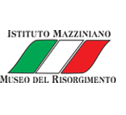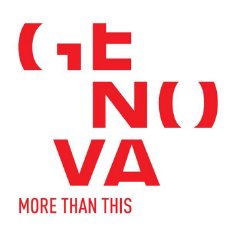On the occasion of the celebrations for the 150th anniversary of the Unification of Italy, the Mazzinian Institute - Museum of the Risorgimento proposed a series of initiatives aimed at presenting the rich historical, artistic and documentary heritage of the civic collections, promoted in collaboration with public and private institutions active in the field, so that the celebrations became an opportunity for common reflection on our history, also in relation to different cultures.
One of the themes presented was Gandhi and the Italians. Comparative Risorgimento, dedicated to reflecting on the events of two different national Risorgimento and the symbolic figures of them, Mazzini and Gandhi.
Bianca Montale (University of Genoa) participated in the meeting, organized in collaboration with ASSEFA Genova, - a non-profit organization that has always maintained constant relations with India- scholar of the History of the Italian Risorgimento and of Giuseppe Mazzini in particular, Rocco Altieri (University of Pisa), professor of the "Inter-departmental course of Sciences for Peace", as well as director of the six-monthly magazine Satyagraha, and Donatella Dolcini (University of Milan), teacher of Hindi at the Faculty of Political Sciences of the Milan State University.
From the discussion it emerged that the events of the Italian Risorgimento are the subject of interest by leading exponents of similar national liberation movements in various countries that were under colonial or tyrannical domination, and in particular in India, where attention to our Risorgimento was relevant, not only from a political point of view, but also from an ethical and social one, with particular reference to Giuseppe Mazzini.
Gandhi, in fact, constantly kept in mind the process of national unification of Italy and recognized in Mazzini one of his main spiritual teachers, drawing useful reflections from the experience of the Italian Risorgimento to ward off errors in India and dangers in his struggle for liberation from British colonialism.
Gandhi and India are not “new” subjects either for Genoa or the Risorgimento Museum; a similar case arose in 2005 when, on the occasion of the bicentenary of the birth of Giuseppe Mazzini, the new Museum of the Risorgimento was inaugurated, in which the relationship between Giuseppe Mazzini and Mahatma Gandhi was highlighted through a virtual “conversation”, created thanks to multimedia technologies, aimed in particular at schools, in order to introduce young people to two exponents from different cultures, but with common principles and ideals, who were protagonists of the democratization process of their respective nations; in 2006 with the inauguration of a statue dedicated to Gandhi in the porto antico, to bear witness to the great Indian patriot and at the same time to testify to the role played by Genoa in history, as a Mediterranean port, thanks to its long tradition of openness towards distant cultures.
On that occasion, a publication was issued, "Mazzini and Mahatma", some extracts of which are published on our website.




